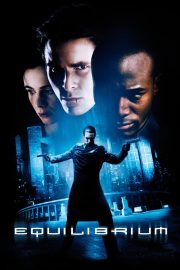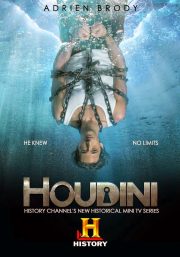The King
Info
1 year ago added

It's the early fifteenth century and English
knight Henry Percy, better known as Hotspur,
is leading the rebellious march against the
neighboring kingdoms. After another victorious
battle against the Scots, Hotspur asks his king
to pay for the ransom Wales asks for his cousin,
but the king refuses, thinking it isn't worth the
trouble. Hotspur loses his temper and insults
the king, mentioning how he's ignoring all the
years of service his family has provided before
stomping out of the room. Meanwhile, Prince Henry
is living in a modest house in town, pretending
to be a commoner named Hal. He has no interest in
politics or the throne, and he spends his days
in the company of women or drinking with his
companion John Falstaff who is a retired knight.
One afternoon, he's approached by a messenger from
the castle that informs him the king is ill
and requests his son to go see him. At first,
Henry turns down the invitation, but John talks
to him later and convinces him that not going
would be worse than confronting his father because
he'll have to live all his life with the regret.
Henry gives in and goes to see his father,
who tells him what he already expected:
Henry may be the oldest son but he won't be king,
the throne will go to his brother Thomas instead.
The king knows Henry doesn't want the position
anyway, but he felt it was his duty to say these
things directly to his son. Henry is indeed
perfectly fine with this decision, but he does
get upset when he hears Thomas will march against
Hotspur the next day. He doesn't think the new
generation should get involved in their father's
feuds, but Thomas ignores his worry. That night,
Henry can't bring himself to have fun because he
keeps thinking about Thomas putting himself in
danger, so the following day he goes to see his
brother on the battlefield. Thomas isn't happy
to see him there, but Henry ignores his complaints
because he isn't here to steal his glory, he just
wants to save Thomas' life. He sends a messenger
to Hotspur with a challenge to single combat,
and Hotspur accepts it even if it goes against
his father's wishes. Both Henry and Hotspur are
very skilled warriors, so their duel is fairly
equal. They begin fighting with their swords
but soon they lose those and resort to good old
hand-to-hand combat, and after lots of struggling,
Henry manages to tackle Hotspur to the ground and
stab him with a dagger he had with him all along.
This victory has prevented a huge battle from
happening and saved both sides many lives,
but Thomas isn't grateful: he was supposed to be
establishing himself as a leader yet Henry has
stolen all his glory. Carrying the painful weight
of having taken a life on his shoulders, Henry
returns to his life of drinking until a few days
later he's visited by the king's Chief Justice Sir
William Gascoigne. Thomas has died in battle and
now the king is on his death bed as well, so Henry
must return to the palace if he doesn't want the
kingdom to descend into chaos without a leader.
Furious over the death of his brother, Henry
visits his father and calls him a monster right
before the old man dies, leaving the country
in his hands. While everyone gets ready for
the coronation, a group of servants goes to
Henry's house in town to retrieve his belongings.
John is kicked out of the house and must
hear what happened with his friend through
the servant's mouth, not getting to see Henry
again before his big day. The coronation ceremony
goes without a hitch, and later during dinner,
Henry opens the presents sent by other kings.
There's a gold chalice that he gifts his
sister the Queen of Denmark Philippa,
and a clockwork bird that he gives to his cousin
the Earl of Cambridge. The last gift though,
it's quite surprising: the Dauphin of France
has sent him a simple ball with no note.
Henry decides to keep it as a memory of the
boy he once was. However the following day,
Gascoigne points out the ball was sent as an
insult and they should respond in kind. Henry
doesn't want to react to provocations though,
he wants to achieve peace through conciliation,
so he prefers to concentrate on local matters
instead of fueling their feud with France.
Later, while Henry spends time with Philippa
before she leaves, she advises him to be careful
because the members of any royal court will always
have their own interests in mind and a king can
never be sure of who to trust. The following day,
the Archbishop of Canterbury tries to get Henry up
to date with the history of the king of France's
genealogy in case he needs to claim the throne,
but Henry is just bored. It doesn't matter what
his father wanted, Henry has no intentions of
invading France or Jerusalem, and such a decision
isn't well-received among the nobles of his court.
After the meeting is over, Gascoigne commends
Henry for caring about his people, but he
also points out that not doing anything against
France's taunting makes him look like a coward.
Meanwhile, John is starting to discover how hard
life is without the prince's company: people don't
receive him as well in taverns, and he's expected
to pay for his own stuff. When he mentions having
a friend in high places, the innkeeper just
reminds him he's been left behind like an old dog.
Sometime later, Henry interrogates a prisoner
that seeks asylum in exchange for information.
He claims to be an assassin sent by the king of
France to kill Henry, and such information is
seen by the court nobles as a direct act of war.
However, Henry still doesn't give in and sends the
king of France a letter saying that sending an
assassin is a cowardly act, so if he wants war,
he should send his army and fight properly.
Henry's decision becomes a subject of concern
among nobles. The Earl of Cambridge and Lord
Grey are approached by French agents that want
them to change sides, so the two of them go
to talk to Gascoigne to ask for his advice
because they're losing faith in their king and
the French offer is much more appealing. After
promising to do something about it, Gascoigne
talks to Henry again, pointing out how letting
these issues simmer always ends up badly, and this
is Henry's opportunity to unite the land for good.
Seeing as he doesn't have much of a choice,
Henry accepts to start a war with France,
taking the actions of those agents towards
his nobles as the third and final strike.
He also orders the Earl of Cambridge and Lord Grey
to lose their heads, disappointed that someone he
called a friend turned out to be in cahoots with
the enemy. Needing someone he can trust and depend
on, Henry goes to town in search of John, who is
upset because he's been ignored all this time.
Henry apologizes for not contacting him sooner,
but he's obviously been busy, and now he needs
his best friend again. He wants John to be the
marshall of his chief military strategist, and
John accepts under one condition: Henry must pay
for his debt at the inn. Sometime later, Henry and
his army sail to France. Shortly after arriving,
they find an abandoned village and decide to set
camp there so they can build catapults to attack
Harfleur. Henry wants to win this through a siege
so he can avoid sacrificing men so soon, but days
continue to pass without any results. The nobles
are getting anxious and the Archbishop insists
on attacking, but Henry refuses and this time,
Gascoigne backs him up because it's important for
them to establish a garrison stronghold here for
their lines of supply from England. Fortunately,
the plan does work and Harfleur surrenders.
The leader asks for only one condition:
for the women and the children to be freed,
and Henry accepts giving them such mercy. Later,
they're visited by Louis, the Dauphin of France,
who proceeds to describe in disturbing detail
what he will do to Henry and his army if they
don't surrender now. Henry admits the tale was
stirring, but only wishes the Dauphin good night
before leaving the tent and asking John the get
the army ready to march again. After many miles of
traveling, the party sets up camp again and sends
three young pages to gather wood. Lous finds them
and kills two of them before sending the third
one back with a head in his hands as a message.
As a response, Henry orders John to kill all
their French prisoners and send their bodies to
be put on spikes by the river, but John refuses to
obey because neither he nor Henry is that kind of
bloodthirsty man. The next day, Henry and his army
march again until they make it to the hills, where
a blood-curdling surprise awaits them: Louis'
army, which outnumbers them by a huge amount.
The nobles advise Henry to retreat, but John cuts
in, explaining he has a plan. The ground between
armies is a flood bowl, and since John's sure
it will rain tonight because his knee is aching,
that ground will become a muddy bog. The French
army is made of mounted men, which equals heavy
armor and horses that will get stuck in the bog.
Henry can send some men as bait to lure them out,
and once they're stuck, the rest of Henry's army
can attack on foot and while wearing no armor,
so they should be able to move freely
and quickly when the French can't.
Together with Henry's skillful archers, this
speed can prove to be an amazing advantage.
The nobles think the plan is incredibly dumb,
but Henry trusts John and decides to give
him a chance: if it rains during the night,
they'll attack in the morning. Fortunately,
the prediction comes true and it rains during the
night, so as soon as the sun rises, the army gets
ready to execute the plan. Henry gets upset when
he sees John get ready to lead the bait party,
so he decides to pay Louis a visit to ask for
a single combat as he had done with Hotspur.
Louis turns down the offer, too confident in
his bigger army and implying Henry is doing this
because he's scared to lose the battle. Angry
but still determined, Henry returns to his men
and gives an encouraging speech before hiding in
the woods while the bait team goes out to fight.
Louis falls for the trap and sends half of his
army out too, but they immediately get showered
with arrows from Henry's archers and fall into the
mud bog just as John had predicted. John's group
does enough damage to slow down the French, and
when Louis sends the rest of his men, Henry and
his armor-less army join the battle on foot as
planned. All of John's predictions continue to
come true and Henry's men easily gain an advantage
as the French struggle to fight in the bog.
When Louis finally understands he's losing
the battle, he comes to Henry seeking a duel,
but Henry refuses to fight a prince that
keeps slipping on the mud. Since Louis
is making such an embarrassment of himself,
Henry allows his soldiers to kill him instead.
The entire army now truly respects Henry after
such a glorious victory, but he doesn't have time
to celebrate because he's found John's body. Upset
and grieving, he orders his men to kill all the
prisoners before they regroup. A few days later,
the King of France comes to see Henry to offer
his surrounder under one condition: Henry must
marry his daughter, Princess Catherine of Valois.
Uniting both royal families would help avoid
any future feuds, so Henry accepts. They return
to England, where the crowd eagerly awaits the
wedding celebrations, so Henry has a talk with
Catherine in private before meeting the public.
Catherine assures him she won't submit to him and
he must earn her respect, but she also wonders
why Henry attacked France in the first place.
Her family never sent any assassin and definitely
not a ball - her father is a good, beloved king
that never wanted war. Remembering his sister's
words and getting suspicious, Henry goes to see
Gascoigne to ask him how he found the assassin in
the first place. Gascoigne's story is vague and
keeps contradicting itself, so when Henry begins
questioning how bigger Gascoigne's territory has
become after conquering France, the man breaks
and admits it had all been his plan. He made up
France's acts of aggression but he doesn't regret
it, because this is what Henry wanted: true peace
can only be forged through victory, and now the
kingdoms have finally been united. Gascoigne gets
on his knee to appeal to his king's greatness,
but Henry just uses his dagger to kill him in
one swift movement. Afterward, Henry reunites with
Catherine and makes her promise she'll always be
honest with him. Catherine gives him her word as
they hear the crowd outside chanting Henry's name.
Director: David Michôd
Release Year: 2019
You May Also Like
Comments
No Comment
Chat
Genres
Release Year
Last Comments









